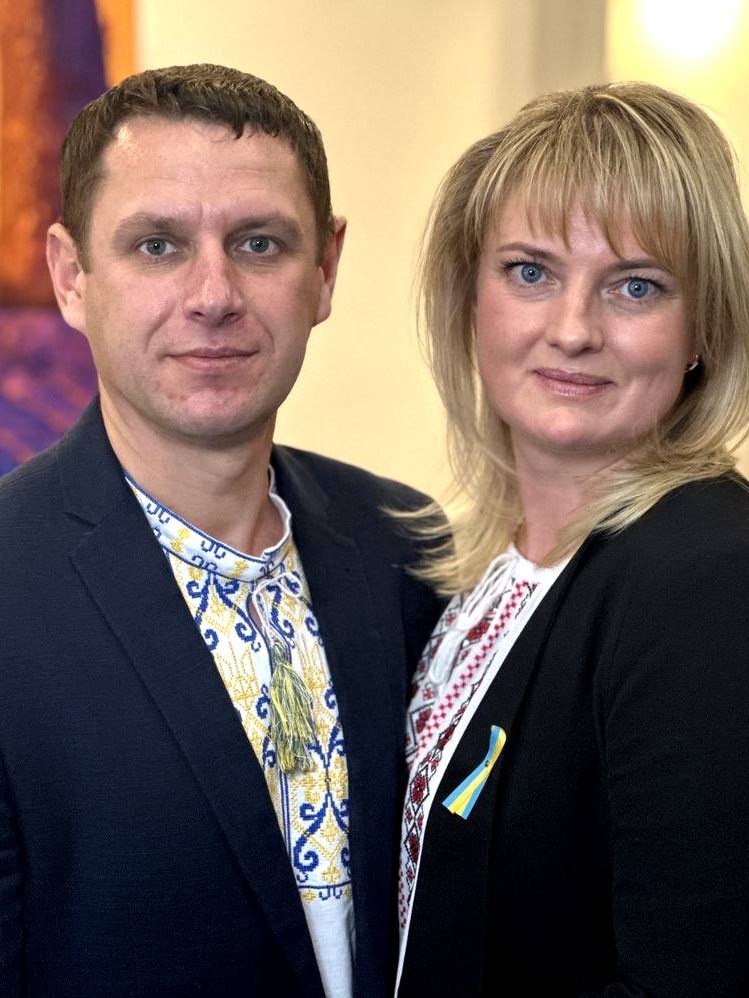When Natalya Kovalchuk fled the outbreak of war in Ukraine early last year with her children and sister, she did not expect to be away from her husband so long.
Key points:
- Hundreds of displaced Ukrainians have arrived in Australia in the past 18 months
- Many are “full of anxiety” and are uncertain about the fate of loved ones left behind
- Some advocates say not enough formal assistance is on offer to support them
“When the war started, we thought it was for a couple of months, maybe for a couple of weeks,” the mother of two said.
“When we came here, we thought we’d be back very quickly.
“We were worried about our families, about our relatives, about our country.”
The Kovalchuks were reunited in December last year, when husband and father Oleksandr, 42, joined his family in Adelaide.
But the federal government’s temporary humanitarian visa program that allowed his family to receive settlement services expired in July 2022.
Mr Kovalchuk transferred to a visa allowing him to work and access Medicare, but he was not eligible for other previously government-funded supports such as free English lessons.
“He has just a bridging visa,” Ms Kovalchuk said.
“It was very hard because I study at TAFE to learn English, but he came without English language.”
Ukrainians in Australia who missed out on the humanitarian visa are also unable to access other entitlements under the temporary government program, such as income and accommodation support.
Volunteer-run group Help Ukrainians Australia, working with the Association of Ukrainians in South Australia, has been trying to support these newly arrived Ukrainians.
Support worker Tania Jarema-Norton said the Adelaide-based organisation relied on donated goods and some funding from the South Australian government.
She said new arrivals were provided English language classes and help finding housing.
“Right now, a lot of people feel in limbo,” Ms Jarema-Norton said.
“They’re uncertain what’ll happen once the humanitarian visa ends, they’re arriving on visas that mean they have uncertainty about their future.
“We have a very strong community, a lot of people that have appeared from nowhere as soon as the invasion started wanting to help, so we have a very active volunteer base.”
The Association of Ukrainians in South Australia president Frank Fursenko estimated about 420 displaced Ukrainians had arrived in South Australia so far.
“It’s not a fixed number because some go interstate some come from interstate,” he said.
“The numbers are constantly changing but they are coming in still.”
Mr Fursenko said the new arrivals have sparked a cultural revival in the Ukrainian community school and dance schools.
“Some of the displaced Ukrainians are working in our schools as teachers and instructors,” he said.
“Assimilation takes its toll, the language gets forgotten, the culture tends to slide a bit, but this has certainly reinforced all those things.”
‘Just full of anxiety’
President of the SLAVA Ukrainian Cultural Centre Aliona King said while new arrivals on bridging visas can work and access Medicare, they are missing other basic support.
“I know a few families who tried to go and study English and got rejected,” Ms King said.
“If they can be provided with permanent residency status then it’ll give them opportunity to start planning the future.
“At the moment they’re just full of anxiety.”
Ms King said even those on three-year humanitarian visas were uncertain about navigating their new lives and hoped they could be given more time to secure their futures.
“To apply for a permanent visa, they obviously need to have a certain occupation, work experience, certain level of English, and it’s just simply not enough time,” she said.
The Department of Home Affairs said since the end of February 2022, it has granted more than 10,700 mostly temporary, non-humanitarian visas to Ukrainians.
“The Australian Government is committed to ensuring that Ukrainians in Australia can continue to reside in the Australian community with access to work, health, education and visa support services,” a department spokesperson said.
While the Kovalchuks are glad to be together, they worry about loved ones back home.
“Every day we have news from Ukraine about how difficult the situation is in Ukraine,” Ms Kovalchuk said.
“Russians are bombing every day, every place, especially civilians.
“It’s very hard to live now in our country.”
But the family is grateful for the support they have received, especially from the Ukrainian community in Adelaide.
“They helped us with everything when at first we didn’t have the visa,” Ms Kovalchuk said.
“We are really very thankful for all Australian people for the support.”




